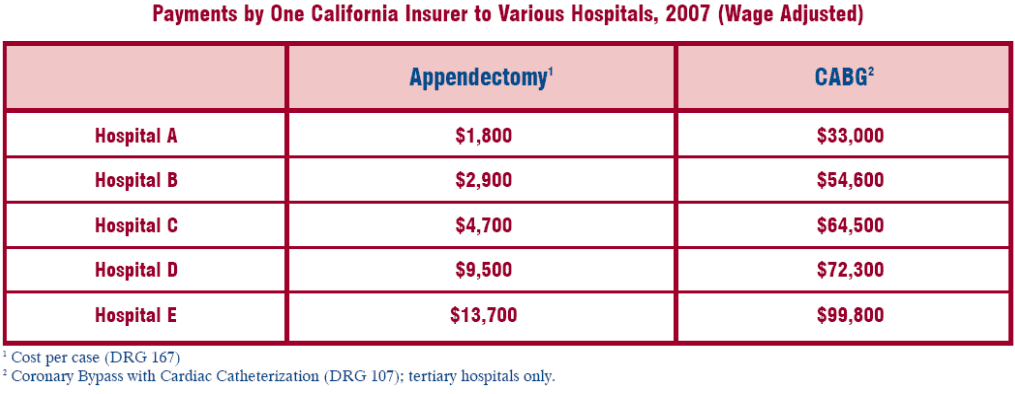We hear a lot of talk from the health insurance industry about how hard it works to hold down health care costs, but that claim doesn’t stand up to scrutiny. The surprising truth is that when insurance companies adopt new techniques to rein in health costs, they take their cues from the phenomenally successful Medicare program – all run by Uncle Sam.
Congress was able to pass Medicare only by satisfying the demands of the American Medical Association and the American Hospital Association that doctors and hospitals be paid whatever they wanted to charge. You know what that gave us, exorbitant prices. In Reinhardt’s words these special interests made Congress “surrender to them the key to the Treasury.”
For Medicare to become law, it would have to be a cash cow for doctors and hospitals. Wilbur Cohen, one of Medicare’s chief architects said: “I was required to promise before the final vote in the Executive Session of the House Ways and Means Committee that the Federal Agency [to be in charge of administering Medicare] would exercise no control.” No one could question the necessity of the care provided or the prices charged.Despite these constraints, Medicare has still managed to do a far better job of containing costs than private insurance.
Reinhardt attributes Medicare’s slower cost growth to what the ultra-conservative American Enterprise Institute bitterly calls “Soviet-style pricing” – even though the pricing schemes were imposed by Ronald Reagan and George H.W. Bush. As a result, Medicare today has cast off the shackles of the 1960s and now controls most of the prices it pays. This is in sharp contrast to private insurance companies, who until the Affordable Care Act simply raised rates any time they pleased.Some people object to the way Medicare sets prices.
But, Reinhardt notes that the methodology and the prices are fully transparent, unlike with private insurance. Medicare has been the chief innovator on pricing, leading the way for everyone else. Private insurers and other nations have copied many of our government’s approaches to pricing for Medicare.
Yet that that doesn’t prevent hospitals from setting their prices for everyone not yet eligible for Medicare arbitrarily, driving up costs. Reinhardt shares a 2004 quote from William McGowan, then chief financial officer of University of California-Davis Health System, a 30-year veteran of hospital financing: “There is no method to this madness. As we went through the years, we had these cockamamie formulas. We multiplied our costs to set our charges.”
And as we often have seen, insurers have little negotiating power with the hospitals—especially the biggest and most prestigious ones. That’s why prices for the same procedure vary considerably in different regions and often within only a few miles.
Because insurers cannot or will not rein in provider fees, those not yet eligible for Medicare are left holding the bag as deductibles and copayments climb. Some call that consumer-directed health care. We might want to call that insurer-mandated costs.












Healthcare cost are controled by: insurance companies, pharmaceutical industry, for profit hospitals and politicians supported by corporate lobbyists.
In my country we call it corruption. In America, you call it Lobbying. But it’s the same thing!” –Robert Reich quoting a foreign visitor to the US
There is only one why to control the costs of health care in this country. That is to have a single payer system. Under this system there would be no need for health insurance. There would be a 6 to 12 percent saving right off the top.
An yes there would have to be wage and price controls. This is the only way to contain the cost of care. An with this cost control would come a streamlined delivery system geared to the patient’s care and well-being and not the money the patient would bring to the provider of the care.
Plus these savings would would bring stability to the whole economy. Because the health care industry is one quarter to one third of our whole economy. The cost of this care would come from taxes. An this would stimulate job creation. Because the more individuals paying into the support of the system, the lower the individual’s cost. What we all have to do is find the will to make this happen. For the health care delivery system in this country is broken!